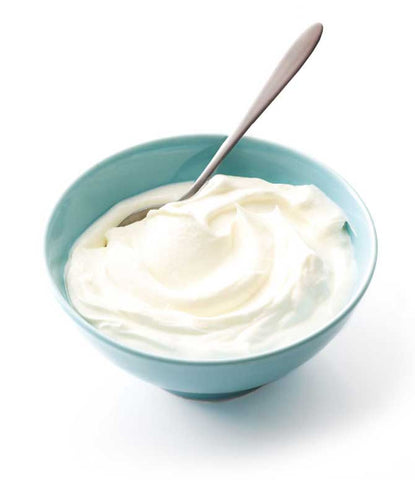What is Greek Yogurt?
Greek yogurt has a much richer texture (and higher protein content) than unstrained yogurt. Since the straining process removes some of the lactose, strained yogurt is also lower in sugar/carbohydrates than unstrained yogurt. Yogurt is a mixture of milk and cream fermented by a culture of lactic acid-producing bacteria. Yogurt produced in the U.S. is made with two specific live and active cultures: Lactobacillus bulgaricus and Streptococcus thermophilus. These metabolize some of the milk sugar (lactose) in the milk into lactic acid. This action helps change the consistency of liquid milk into yogurt.
What KIND SHOULD I CHOOSE?
The only choice you should make is plain yogurt, which has only 2 ingredients: live cultures and milk. In flavored containers of yogurt, you are consuming more calories from the sweetener than you are from the yogurt.
Be sure to read the protein and carbohydrate values on the nutrition panel. The higher the protein and the lower the carbohydrate content, the more actual yogurt you are getting into the container.

What HEALTH BENEFITS DOES IT HAVE?
Greek yogurt provides protein, calcium, vitamins and other minerals. Active cultures may aid digestion, ease diarrhea, boost immunity, and fight infection because of their special properties. Live and active
cultures can help decrease the symptoms of lactose intolerance-the inability to digest the primary carbohydrates in milk due to a deficiency of the enzyme lactase.






